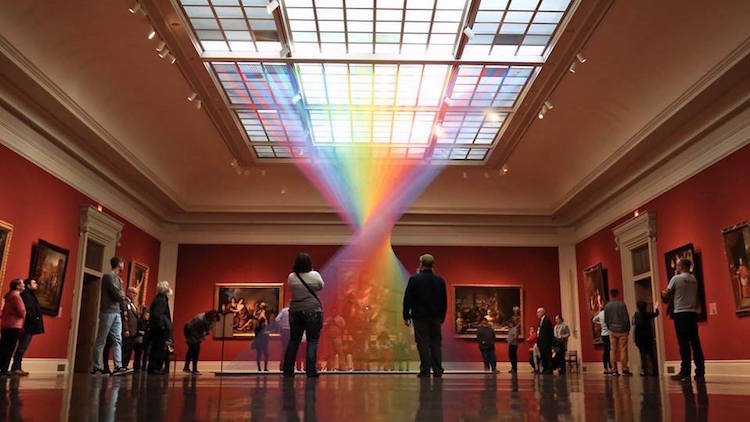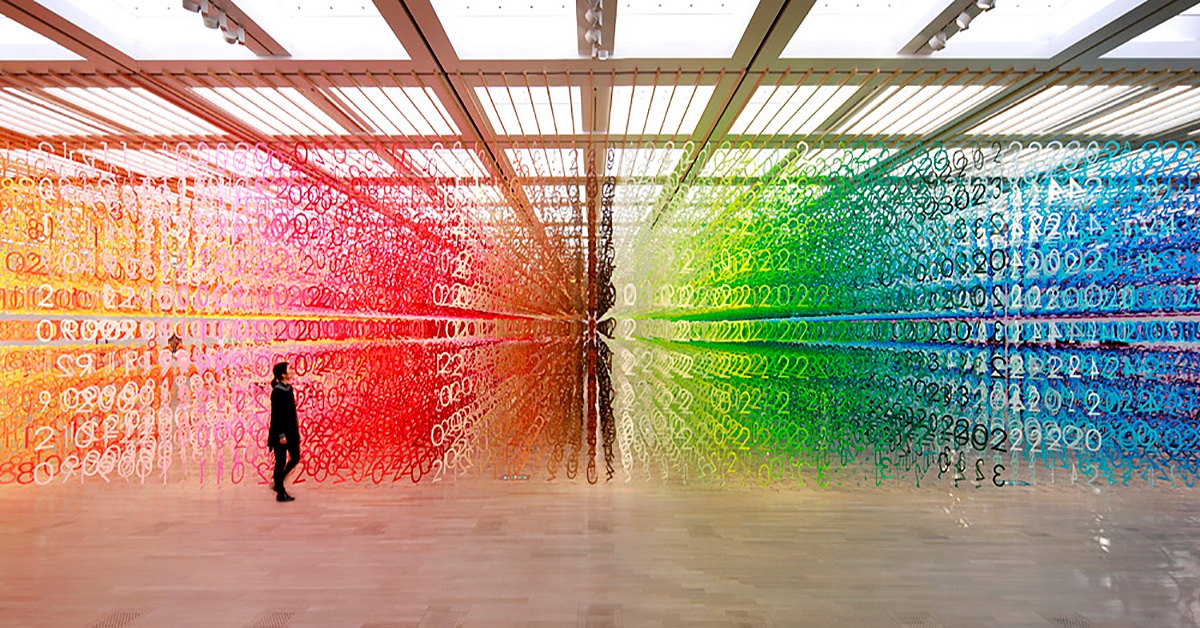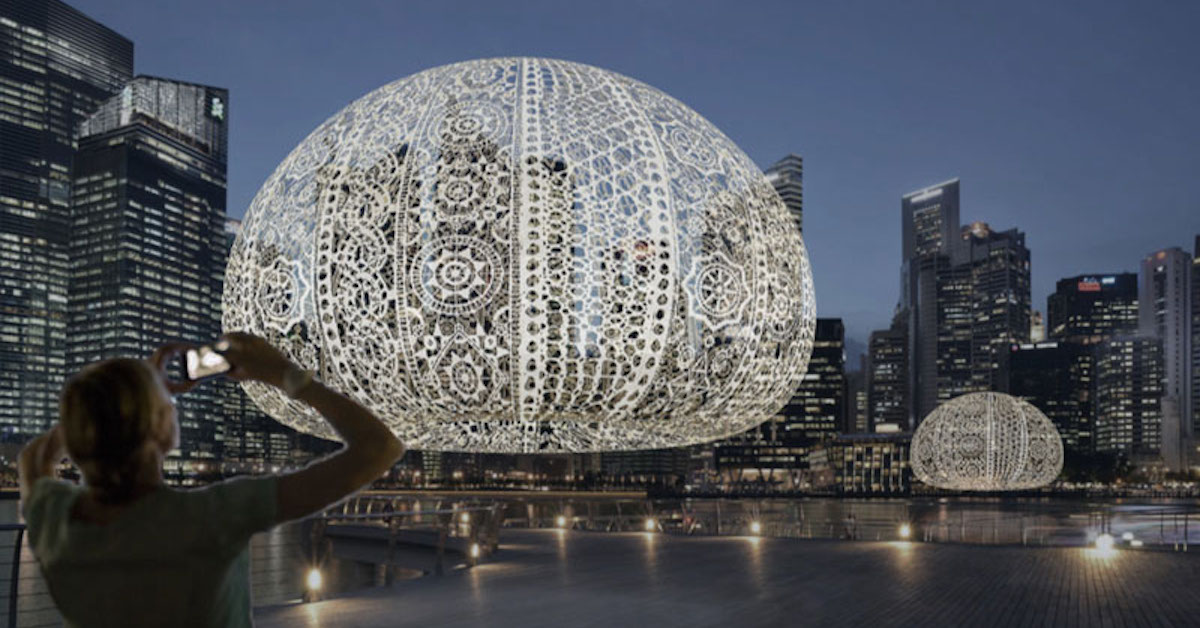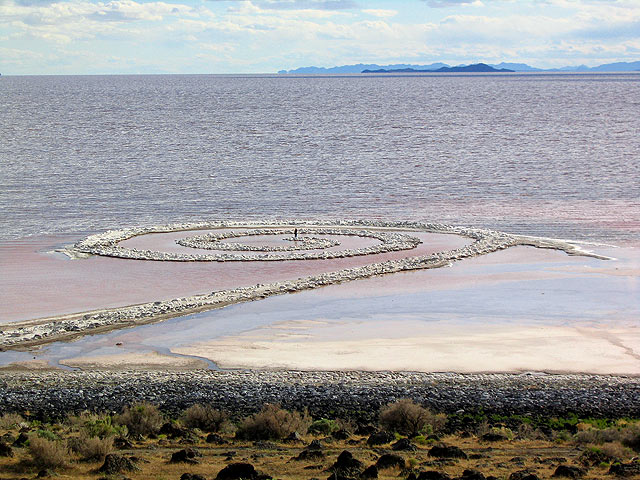
Heartbeat by Charles Pétillon
Like most movements that make up modern and contemporary art, installation art exhibits an interest in innovating. Though similar to sculpture and related to a range of recent artistic genres, the immersive practice offers a unique way to experience art. In order to grasp the significance of such a movement, it is important to understand what makes it so special, from its distinctive qualities to its artistic influences.
Here, we explore the avant-garde movement, paying particular attention to the ways in which it creatively engages audiences and manufactures new experiences.
What is Installation Art?
Installation art is a modern movement characterized by immersive, larger-than-life works of art. Usually, installation artists create these pieces for specific locations, enabling them to expertly transform any space into a customized, interactive environment.

Plexus 35 by Gabriel Dawe
Characteristics
Immersive
A key attribute of installation art is its ability to physically interact with viewers. While all artistic mediums have the ability to engage individuals, most do not completely immerse them in interactive experiences.
In addition to facilitating dialogues between observers and works of art, this unique characteristic invites individuals to view art from new and different perspectives—literally!

Forest of Numbers by Emmanuelle Moureaux
Large-Scale
Given their interactive nature, most works of installation art are large in scale. Their sizable statures enable viewers to become completely immersed in each larger-than-life environment. In many cases, it even allows them to sit, stand, or walk through it—a distinctive capability not commonly found in more traditional forms of art.

The Urchins by Choi+Shine Architects
Site-Specific
Unlike sculptures, paintings, and similar pieces, installations are usually planned with certain sites in mind, from rooms in galleries and museums to outdoor spaces. Given the strategic nature of their designs and the uniqueness of their surroundings, site-specific works of art ensure a one-of-a-kind aesthetic and experience.

Spiral Jetty by Robert Smithson 1938-1973 (Transferred from en.wikipedia to Commons.) [Public domain or CC BY-SA 2.5], via Wikimedia Commons
Influences
Like many modern and contemporary genres, the installation art form is rooted in several different movements—namely, Dada, conceptualism, and performance art.
Dada
Like Dada, an avant-garde movement that emerged in the early 20th century, installations often showcase an experimental approach to art. Specifically, installation’s incorporation of mixed media and emphasis on three-dimensionality are undoubtedly inspired by two Dada staples: ready-mades and assemblages.
Conceptualism
Inspired by the Dadaists, Conceptual artists believe that the idea behind a work of art takes precedence over its aesthetic. This sentiment is also present in installation art, with well-known contemporary artists like Ai Wei Wei and Damien Hirst using their celebrated installations as a means to relay messages to viewers. “As a person, I was born to give out my opinions,” Ai Wei Wei explains. “By giving out my opinions, I realize who I am.”
Performance Art
While performance art—a practice performed before an audience—may seem dissimilar to installation, a form of fine art, the two movements are linked by a key characteristic: a creative and conceptual use of space. In both cases, artists find innovative and inventive ways to reinterpret and reimagine everyday environments.
Next: Now that we know what installation art is, let’s take a look at the best art installations from every year since 2013 and get to know the top installation artists in the field.
